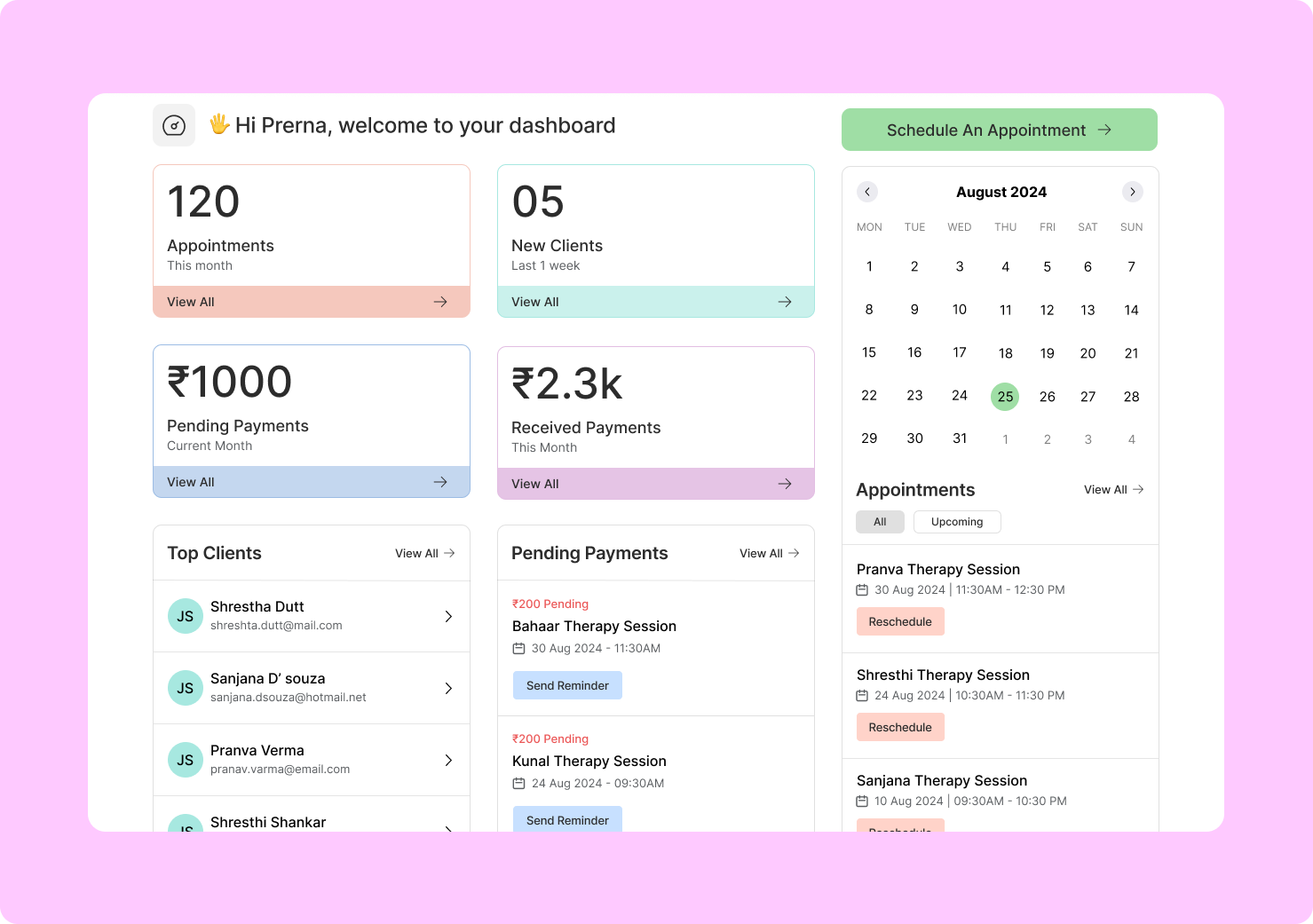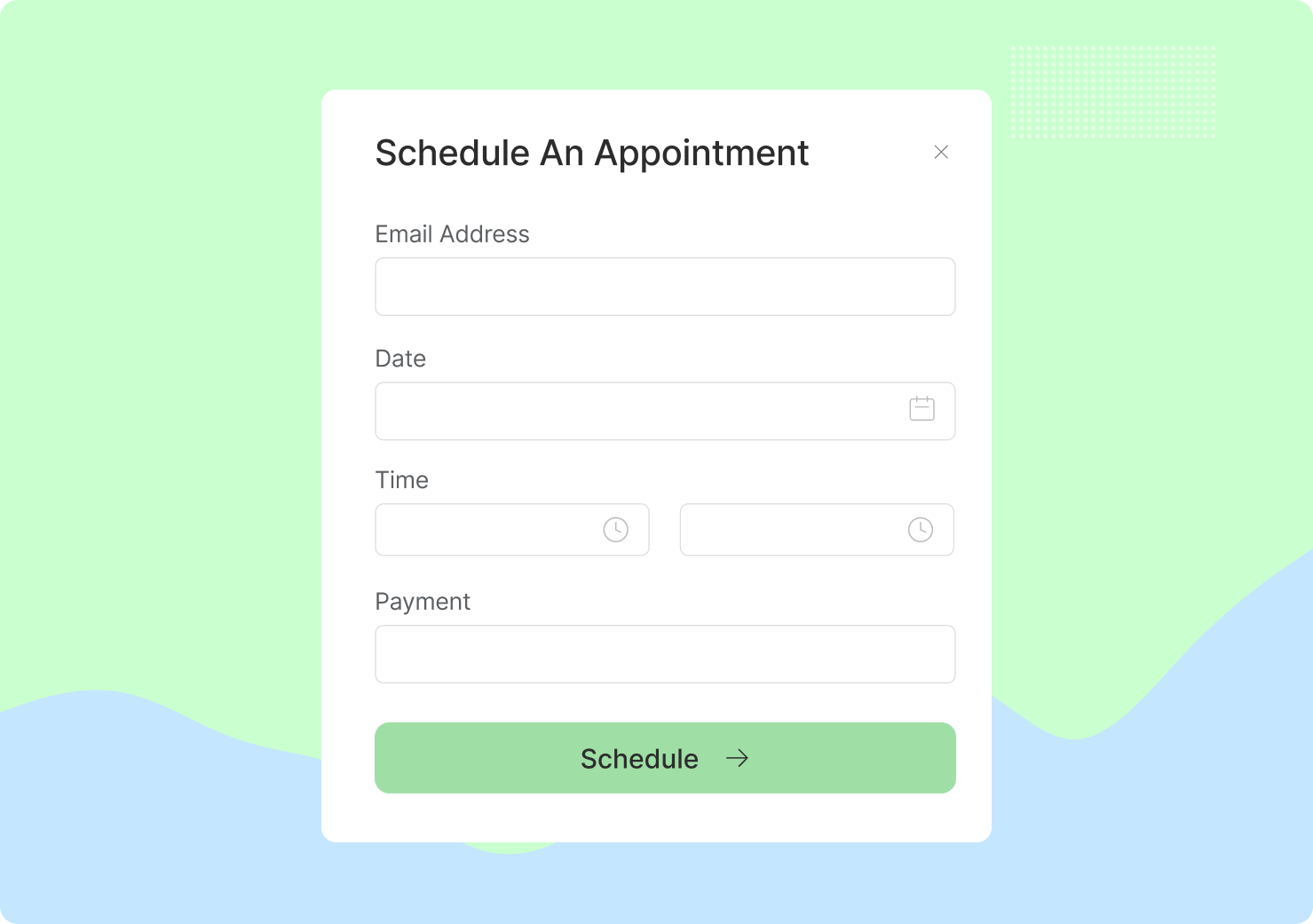Made for therapists, by therapists. Built for Ease.
Built for Ease.
Organize your practice. Schedule, send reminders and get paid with one click. All in the same place.
Sign-up with email address
Signup with Google









